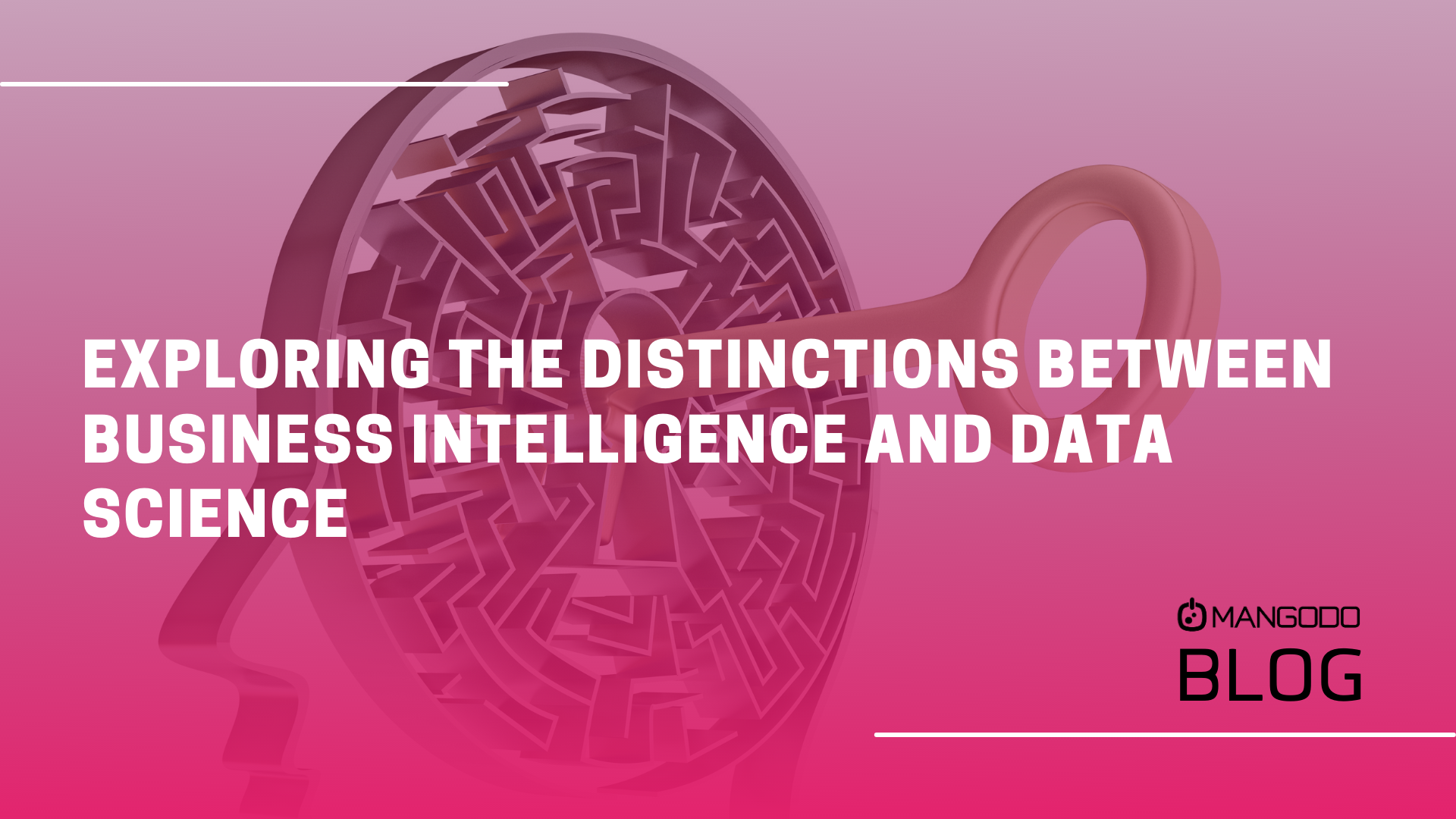Exploring the Distinctions Between Business Intelligence and Data Science
In today's data-driven landscape, organizations are leveraging advanced technologies to extract valuable insights from their data, aiding in informed decision-making and strategic planning. Two prominent disciplines in this realm are Business Intelligence (BI) and Data Science. While they share a common goal of extracting insights from data, they differ significantly in their scope, methodologies, and applications. In this blog post, we will delve into the key differences between Business Intelligence and Data Science.
1. Definition and Focus:
Business Intelligence primarily involves the collection, analysis, and visualization of historical data to help businesses make informed decisions. It focuses on presenting past and present data through dashboards, reports, and interactive tools. BI aims to provide a clear overview of business operations and performance, aiding in monitoring key performance indicators (KPIs) and tracking progress toward goals.
Data Science, on the other hand, encompasses a broader spectrum. It involves the extraction of insights and knowledge from various types of data – historical, real-time, structured, and unstructured. Data Scientists not only analyze historical data but also build predictive and prescriptive models using advanced statistical and machine learning techniques. Data Science aims to forecast future trends, optimize processes, and drive innovation.
2. Scope of Analysis:
BI tends to focus on descriptive analysis, answering questions like "What happened?" and "Why did it happen?" It relies on visualizations, dashboards, and ad-hoc reporting to provide a comprehensive view of historical performance and trends. BI tools excel at providing an overview of a company's operations and enabling users to explore data within specific dimensions.
Data Science, on the other hand, extends beyond descriptive analysis. It encompasses predictive analysis (forecasting future outcomes) and prescriptive analysis (suggesting optimal actions). Data Scientists develop models to understand patterns, make predictions, and simulate scenarios, allowing businesses to anticipate trends and make proactive decisions.
3. Data Volume and Complexity:
BI systems usually deal with structured data, such as sales figures, customer demographics, and financial data. The focus is on data aggregation and summarization to create actionable insights. BI is well-suited for handling large volumes of data, but it may struggle with unstructured or complex data sources.
Data Science often works with both structured and unstructured data, including social media posts, images, and text documents. Data Scientists employ advanced techniques like natural language processing (NLP) and deep learning to extract insights from these diverse data sources. The complexity of data science tasks often demands more sophisticated algorithms and computational resources.
4. Skillsets and Tools:
BI professionals usually possess skills in data visualization, reporting tools (such as Tableau, Power BI), and SQL for querying databases. Their focus is on presenting data in a user-friendly manner, enabling business users to interpret information without needing technical expertise.
Data Scientists, on the other hand, require a strong foundation in statistics, machine learning, and programming languages like Python or R. They work with a wider array of tools and libraries to clean, preprocess, model, and analyze data. The role demands a deeper technical understanding to develop complex algorithms and predictive models.
5. Business Impact:
BI provides immediate value by helping organizations monitor current performance and track progress towards predefined goals. It aids in identifying trends, optimizing operations, and enhancing decision-making within established business processes.
Data Science has a more transformative impact. By uncovering hidden patterns and predicting future outcomes, it enables businesses to innovate, discover new revenue streams, and make data-driven decisions that reshape strategies and operations.
In conclusion, while Business Intelligence and Data Science both leverage data for insights, they do so in distinct ways. BI offers a retrospective view, focusing on reporting and visualizing historical data to guide current operations. Data Science goes beyond, using advanced techniques to predict future trends, optimize processes, and foster innovation. Both disciplines play essential roles in today's data-centric world, catering to different needs within organizations aiming to harness the power of data.
